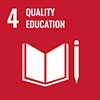Rebellion in economics classrooms: why the neoclassical monoculture is to be ended
Economics as an academic discipline is unique inasmuch as ever-increasing numbers of students are rebelling against the content offered by universities. Our intention with this paper is to expose the scope of the problem lying behind this discontent, addressing some of its aspects in close detail. First, the economics discipline is defined in its current state as a monoculture based on the three axiomatic principles of neoclassical economics, and through epistemic discourse, the monoculture problem is discussed in depth. Second, the lack of pluralism in current study programmes is highlighted, with the results from analyses conducted by a variety of groups focusing on universities in the United Kingdom, France and Spain. Third, the pluralism of theories, disciplines and methodologies is presented as a strategy to break with the neoclassical monoculture and to improve the education of students of economics. The paper concludes by bringing into sharp focus how pluralism in the teaching of economics is necessary not only for economics students, but for the academic world, the business world and society in general.
ODS


 Ferran Español Casanovas
Ferran Español CasanovasBachelor’s degree in Economics from Pompeu Fabra University (2015), currently studying for a bachelor’s degree in Physics at the University of Barcelona. Assessor and member of the Catalan University Quality Assurance Agency’s Committee on Legal and Social Sciences Studies since 2012. Member of the Faculty of Economics and Business Board from 2010 to 2012. One of the driving members of the International Student Initiative for Pluralism in Economics in Spain and of the collective Post Crash Barcelona.
 Laura de la Villa Aleman
Laura de la Villa AlemanBachelor’s degree in Economics from the Pompeu Fabra University (2012) and master’s degree in Economic History from the University of Barcelona and the University of Zaragoza (2013). Pre-doctoral researcher in the Department of Economic History and Institutions at the University of Barcelona since 2014. Her research is dedicated to aspects relating to economic instability. She teaches World Economic History to undergraduate Economics and Business Administration students. Since beginning her studies she has been involved with the movement calling for pluralism in economics study programmes. She has been a driving force in the International Student Initiative for Pluralism in Economics in Spain and a founding member of the collective Post-Crash Barcelona.



